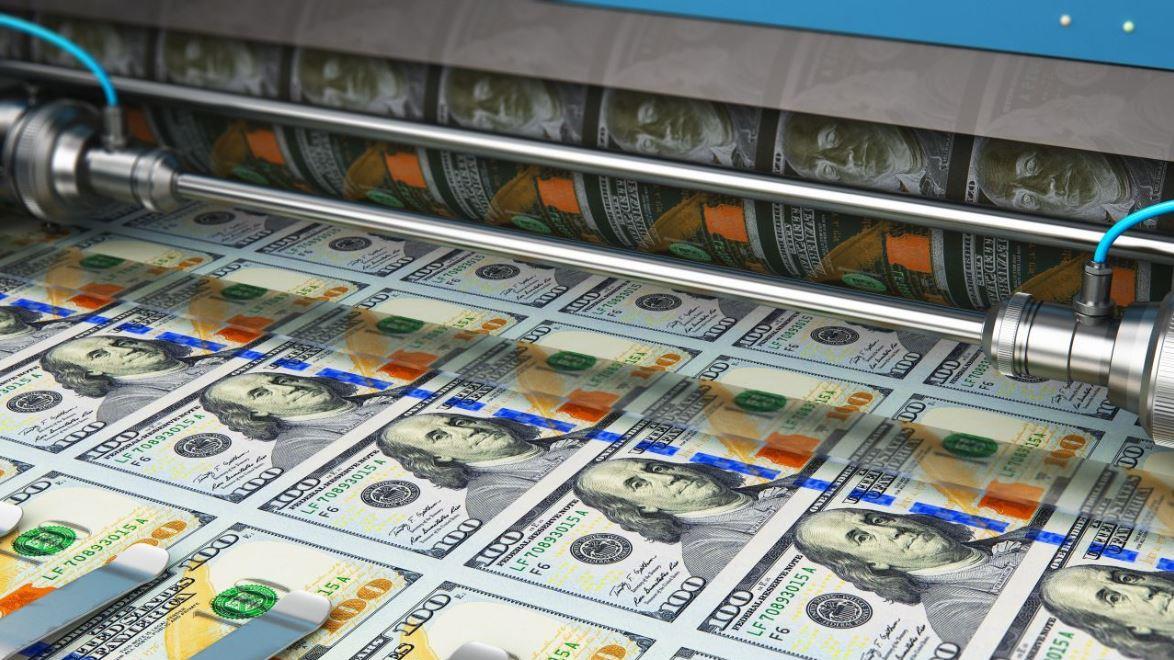The biggest financial risk that no one wants to talk about
The national debt now stands at over $23 trillion
By now, you’ve probably heard just about every variety of predictions for the U.S. economy and financial markets. While those predictions are all over the place, I’m struck by the consistency among prognosticators when it comes to the key risks about which we should be concerned.
Along with the headline risks of recession, trade wars, political dysfunction, and more, there’s another risk, perhaps greater than all the others, that we used to talk about but don’t anymore. Remember the national debt and budget deficit? Well, those sums are far larger – and more dangerous – than in the “old” days when we used to talk about them.
PENCE CONFIRMS TAX CUTS 2.0 'ABSOLUTELY' COMING, LIKELY THIS YEAR
The national debt now stands at over $23 trillion, including publicly held debt and intragovernmental debt. That’s more than our country’s entire gross domestic product, placing the U.S. in the company of some of the most debt-laden developed countries in the world.
And it’s getting worse. The deficit, by some measures, now exceeds $1 trillion. According to the Congressional Budget Office, in 2018, interest payments on the national debt accounted for approximately 8 percent of all U.S. spending, while 61 percent went to Social Security, Medicare, Medicaid, and other mandatory spending programs. Add in 15 percent for defense, and only 16 percent was left for discretionary spending. With forecasts of growth in mandatory spending and interest expense, the CBO projects that the deficit (and debt) will continue growing over the next several years unless there are politically and economically difficult changes to the current taxation and spending frameworks.
TRUMP'S BUDGET PLAN RUNS $1T DEFICIT, CUTS $4.4T IN SPENDING OVER 10 YEARS
So why is this such a major risk? For many reasons, but here are just three that are increasingly timely: soaring debt and deficit levels could create a global crisis of confidence in the U.S.; they could impair the ability of the government to deal with the next crisis; and they could lead to rising debt service that forces restrictive taxation or spending policies upon us.
Erosion of global confidence in the U.S. from rising debt and deficit levels could result in the government having to pay meaningfully higher interest rates, eventually leading to still greater debt and deficit levels and, ultimately, increased taxes and/or decreased spending. Even the status of the dollar as the world’s reserve currency could be threatened.
Growing debt and deficit levels could impair the ability of the government to deal with a future financial crisis. In order to reverse the Great Recession, the government injected massive amounts of stimulus into the economy. At what point will rising debt and deficit levels impede the kind of stimulus necessary to save us the next time?
GET FOX BUSINESS ON THE GO BY CLICKING HERE
Debt service could become a substantially larger portion of the U.S. budget, especially when interest rates rise. If this happens, the government will have a diminishing pool of dollars for critical spending to maintain its competitive position and status in the world.
For today, however, interest rates on U.S. Treasuries remain historically low, perhaps because, consistent with the theme of this article, investors are focused on the headline risks and not on the debt and deficit. After all, the 2011 credit-rating downgrade of the U.S. ultimately did not deter investors. There’s also the example of Japan, which has much higher debt-to-GDP levels than the U.S., possibly demonstrating that major developed economies can now sustain higher debt levels.
WHO'S BEHIND THE FED'S INTEREST RATE DECISIONS?
Yet, risk must be measured not only by proximity but also by probability and magnitude. Granted, many of the risks being talked about today may be more pressing, and the risk posed by the U.S. debt and deficit may be years from maturation; but it tops just about all the others in terms of long-term probability and magnitude. It’s time that we started talking about it again.
Michael Nathanson is CEO of The Colony Group.




















